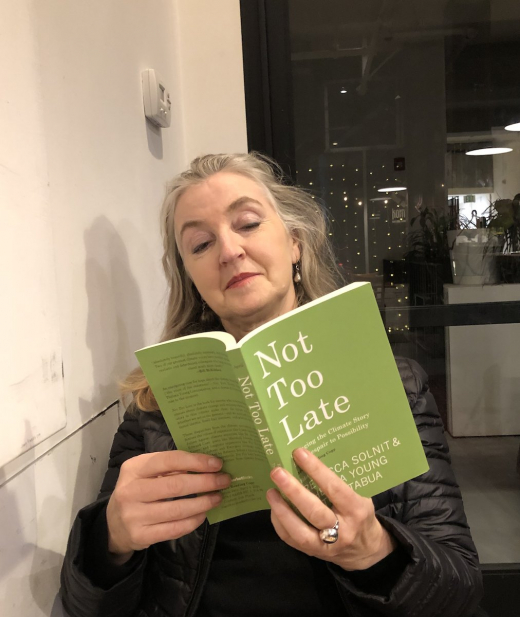
Citation de MegGomar
When I was young, women were raped on the campus of a great university
and the authorities responded by telling all the women students not to go
out alone after dark or not to be out at all. Get in the house. (For women,
confinement is always waiting to envelope you.) Some pranksters put up a
poster announcing another remedy, that all men be excluded from campus
after dark. It was an equally logical solution, but men were shocked at being
asked to disappear, to lose their freedom to move and participate, all
because of the violence of one man. It is easy to name the disappearances of
the Dirty War as crimes, but what do we call the millennia of
disappearances of women, from the public sphere, from genealogy, from
legal standing, from voice, from life? According to the project Ferite a
Morte (Wounded to Death), organized by the Italian actress Serena Dandino
and her colleagues, about sixty-six thousand women are killed by men
annually, worldwide, in the specific circumstances they began to call
“femicide.” Most of them are killed by lovers, husbands, former partners,
seeking the most extreme form of containment, the ultimate form of
erasure, silencing, disappearance. Such deaths often come after years or
decades of being silenced and erased in the home, in daily life, by threat
and violence. Some women get erased a little at a time, some all at once.
Some reappear. Every woman who appears wrestles with the forces that
would have her disappear. She struggles with the forces that would tell her
story for her, or write her out of the story, the genealogy, the rights of man,
the rule of law. The ability to tell your own story, in words or images, is
already a victory, already a revolt.
and the authorities responded by telling all the women students not to go
out alone after dark or not to be out at all. Get in the house. (For women,
confinement is always waiting to envelope you.) Some pranksters put up a
poster announcing another remedy, that all men be excluded from campus
after dark. It was an equally logical solution, but men were shocked at being
asked to disappear, to lose their freedom to move and participate, all
because of the violence of one man. It is easy to name the disappearances of
the Dirty War as crimes, but what do we call the millennia of
disappearances of women, from the public sphere, from genealogy, from
legal standing, from voice, from life? According to the project Ferite a
Morte (Wounded to Death), organized by the Italian actress Serena Dandino
and her colleagues, about sixty-six thousand women are killed by men
annually, worldwide, in the specific circumstances they began to call
“femicide.” Most of them are killed by lovers, husbands, former partners,
seeking the most extreme form of containment, the ultimate form of
erasure, silencing, disappearance. Such deaths often come after years or
decades of being silenced and erased in the home, in daily life, by threat
and violence. Some women get erased a little at a time, some all at once.
Some reappear. Every woman who appears wrestles with the forces that
would have her disappear. She struggles with the forces that would tell her
story for her, or write her out of the story, the genealogy, the rights of man,
the rule of law. The ability to tell your own story, in words or images, is
already a victory, already a revolt.






